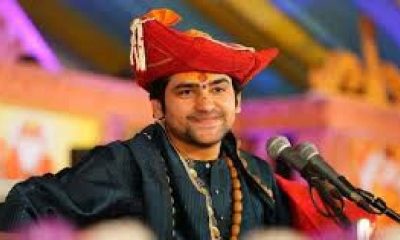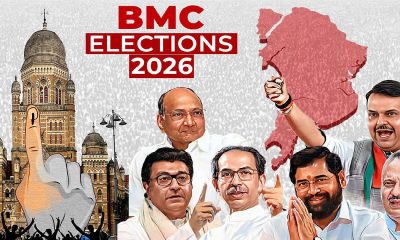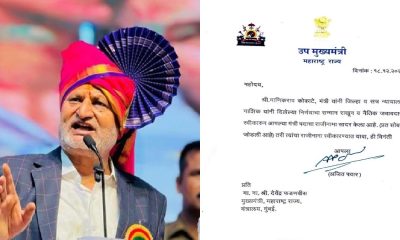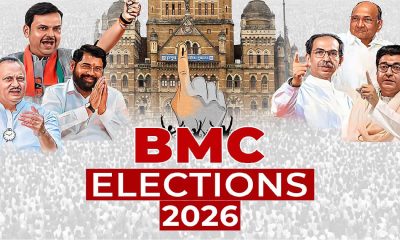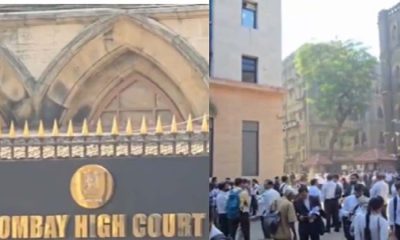National News
Charge sheet can’t be equated with an FIR for free public access: SC
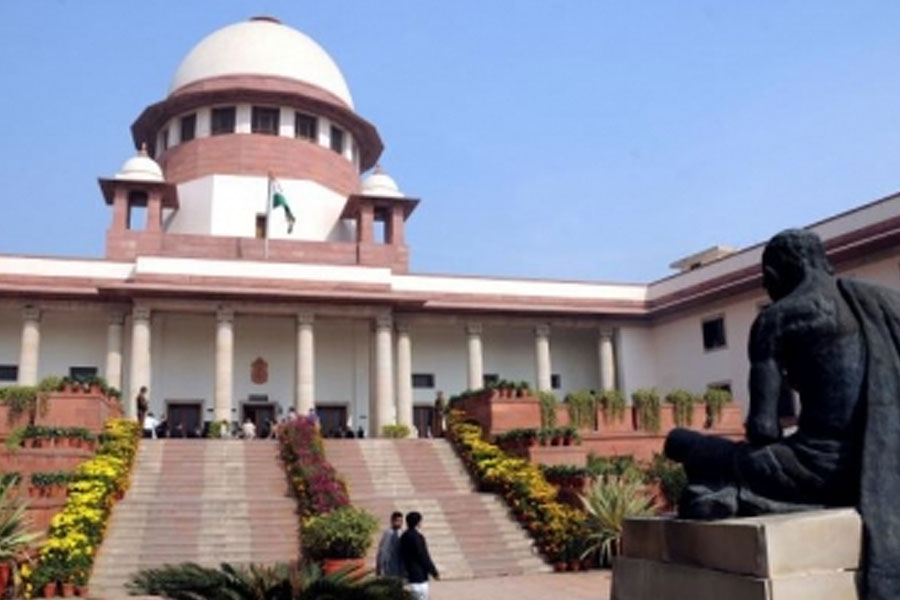
The Supreme Court on Friday junked a PIL seeking free public access to charge sheets filed by police departments and investigative agencies – CBI and ED — saying that a charge sheet is not a public document.
It emphasised that if charge sheets are put on the public domain, then it will be contrary to the scheme of the Criminal Procedure Code and may also violate the rights of the accused as well as the victim and/or even the investigating agency.
A bench of Justices M.R. Shah and C.T. Ravikumar said: “Putting the FIR on the website cannot be equated with putting the charge sheets along with the relevant documents on the public domain and on the websites of the state governments.”
Advocate Prashant Bhushan, representing petitioner Saurav Das, cited the apex court decision Youth Bar Association of India case, where it directed copies of FIRs to be published within 24 hours of their registration on the police websites or on the websites of the state governments.
In connection with publication of FIRs, the bench said this direction was passed looking into the interest of the accused and so that the innocent accused are not harassed and they are able to get the relief from the competent court and they are not taken by surprise.
“Therefore, the directions issued by this court are in favour of the accused, which cannot be stretched to the public at large so far as the charge sheets are concerned,” said Justice Shah, who authored the judgment on behalf of the bench.
Bhushan had cited the scheme of the Code of Criminal Procedure, particularly Sections 207, 173(4) and 173(5) to support his case. He vehemently argued that as per the aforesaid provisions when a duty is cast upon the investigating agency to furnish the copy of the challans/charge sheets along with all other documents to the accused, the same also should be in the public domain to have the transparency in the working of the criminal justice system.
The bench said the relief which is sought in the present writ petition directing that all the challans/charge sheets filed under Section 173 Cr.P.C. shall be put on public domain/websites of the state governments shall be contrary to the scheme of the Criminal Procedure Code.
Citing CrPC sections, the bench added that the investigating agency is required to furnish the copies of the report along with the relevant documents to be relied upon by the prosecution to the accused and to none others.
“Therefore, if the relief as prayed in the present petition is allowed and all the charge sheets and relevant documents produced along with the chargesheets are put on the public domain or on the websites of the state governments, it will be contrary to the scheme of the Criminal Procedure Code and it may as such violate the rights of the accused as well as the victim and/or even the investigating agency,” said the bench.
Citing Section 74 of the Indian Evidence Act, Bhushan argued that charge sheets were “public documents”, which can be accessed.
Dismissing the petition, the bench said: “Documents mentioned in Section 74 of the Evidence Act only can be said to be public documents, the certified copies of which are to be given by the concerned police officer having the custody of such a public document. Copy of the charge sheet along with the necessary documents cannot be said to be public documents within the definition of public documents as per Section 74 of the Evidence Act.”
Crime
Three Noida schools receive hoax bomb threat emails; UP Police launch probe
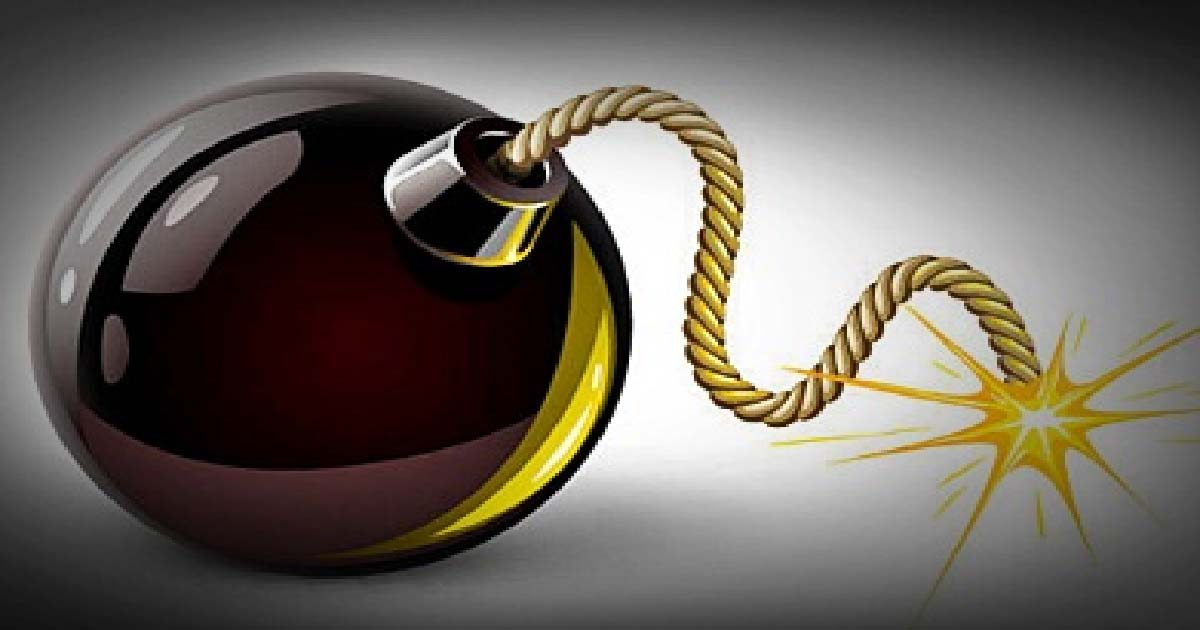
Noida, Dec 19: Panic gripped Noida in Uttar Pradesh’s Gautam Buddha Nagar district, as several prominent educational institutions received threatening emails warning of bomb blasts in their premises.
The e-mail bomb threat, received by the Step by Step School in Sector-126, triggered an alarm in the school administration, leading to the evacuation of children and teachers, followed by heightened security checks.
The police teams rushed to the campus after they were informed about a bomb threat by the school administration. Police reached the spot, cordoned off the school premises and carried out a thorough search operation; however, nothing suspicious was found. Bomb disposal squad and dog squad were brought in to scan the classrooms, corridors, basement, playgrounds and other sensitive areas.
As no mysterious objects or explosive materials were recovered during the search, the police eventually declared it to be a hoax call.
The latest episode of bomb threats in Noida and other NCR schools marks a continuation of the disturbing trend of hoax threats, seen in the past few months, targeting educational institutions – primarily schools.
Apart from the Step by Step School, the two other schools that are reported to have received hoax threat calls include Amity School and Shiv Nadar School. The simultaneous threats via email to the city’s three prestigious schools created an atmosphere of fear and trepidation among the administration as well as parents.
Meanwhile, the police have launched a detailed probe into the incident, activating its cyber cell to identify the source and sender of the hoax email. An investigation is underway to locate the IP address from which the threatening email was sent, and also to determine whether it was an act of mischief or an organised conspiracy.
The Noida Police have also appealed to the school authorities and the public at large, not to take any suspicious information lightly, but also not to pay attention to rumours and hearsay. Parents as well as the general public have been urged to immediately report any visible threat or suspicious activity to the police.
Business
Nifty to touch 29,094 in 12 months supported by durable earnings, strong macro backdrop

New Delhi, Dec 19: India’s benchmark index Nifty is expected to touch 29,094 in one year based on long‑term valuation averages and earnings durability, a report said on Friday.
Wealth management firm PL Wealth said in the report that India enters the end of 2025 from a position of relative macro strength with record‑low inflation, a dovish monetary stance, resilient domestic demand and improved corporate earnings visibility.
“In the near term, large-cap stocks remain preferred due to their earnings stability and strong balance sheets, while selective exposure to high-quality mid-cap names is being added as visibility improves,” the wealth management firm cited its strategy.
Over the next 6 to 24 months, the earnings cycle is expected to broaden across consumption, financials, capex-linked sectors and select industrials, supported by benign inflation, lower interest rates and sustained domestic liquidity.
“India’s current macro configuration is among the most constructive we have seen in over a decade,” said Inderbir Singh Jolly, CEO, PL Wealth Management.
While global uncertainties will continue to create short-term volatility, India’s structural strengths—policy reform, financialisaton of savings and improving corporate balance sheets—position it well for sustained long-term growth, Inderbir added.
RBI’s 25 basis‑point cut to a 5.25 per cent policy repo rate lowered its CPI inflation projections and upgraded GDP growth estimates, signalling confidence in the sustainability of domestic demand, the report said.
The firm also noted FY26 GDP growth projection of 7.3 per cent underpinned by robust infrastructure spending, resilient consumption and key policy measures such as GST rationalisation and income-tax cuts.
The FY26 September quarter earnings season delivered broad-based strength, with several sectors—including hospitals, capital goods, cement, electronics manufacturing services, ports, NBFCs and telecom—reporting double-digit growth in EBITDA and profits.
The firm noted that Nifty earnings per share estimates for FY26–FY28 imply an earnings CAGR of nearly 14 per cent. Domestic institutional investors have anchored markets with record net inflows of over Rs 6.8 trillion year‑to‑date.
Crime
ACB Gets Go-Ahead To Proceed Against Mazgaon Court Additional Sessions Judge Aejazuddin Kazi As Corruption Probe Deepens

Mumbai: The Anti Corruption Bureau (ACB) has obtained permission to proceed against the Additional Sessions Judge of Mazgaon court, Aejazuddin S. Kazi, who has been booked for corruption charges. ACB has so far obtained his voice sample and also seized the mobile phone he was using.
The agency on Thursday opposed the bail plea of Chandrakant Vasudev, stenographer posted at Mazgaon court, arrested on corruption charges. The agency claimed that there is prima facie evidence showing active involvement of him and Additional Sessions Judge, Aejazuddin S. Kazi in the corruption case.
The prosecution on Thursday in its reply to Vasudev’s bail application informed the special court that the Bombay high court has last month allowed the agency to proceed against Kazi as per law.
After the high court’s permission, Kazi was summoned to join the probe, wherein his voice sample has been taken on December 8. Kazi’s phone has also been seized after he produced it before the investigating officer. Also the agency has also recorded his statement and his house was also searched on December 10, the prosecution informed the court in its reply.
While opposing Vasudev’s bail plea, the prosecution contended that, ‘investigation into the registered case is still ongoing, and prima facie evidence has been obtained showing the active involvement of Vasudev and Kazi in the crime.’
Besides, the prosecution claimed that they are probing the involvement any other public servant. Besides, the prosecution has also raised apprehension that if released on bail Vasudev may obstruct the probe and may attempt to destroy evidence.
Vasudev’s defence lawyer on the other hand has contended that for further investigation, his detention is not necessary and he may be released on bail imposing conditions. The court is likely to pass order on the bail plea om Friday.
Vasudev was arrested on November 10 for allegedly accepting a bribe of Rs15 lakhs in exchange for a favourable verdict from Kazi in a dispute related to property.
It is alleged that it all started from on September 09, the complainant’s office associate was present at the Civil Sessions Court, Court No. 14 for the hearing of the petition involving the complainant. At that time, Vasudev contacted the office associate in the court’s washroom and told him to “do something for Saheb (the Judge), and the order will be in your favor”.
Further, Vasudev contacted the complainant and asked him to meet him at a café. There he allegedly demanded Rs 10 lakh for himself and 15 lakh for the judge, however, the complainant refused. The agency alleged that as the complainant did not accept the offer, Vasudev contacted complainant’s office associate who used to attend court hearings, on WhatsApp and said that if the money was not paid, the order would be against them, police said. The complainant then approached the ACB and after the verification a trap was laid.
The prosecution has claimed that after the trap it has come on record that Vasudev contacted Kazi on call seeking confirmation of the bribe amount. It is claimed that after Kazi’s consent Vasudev accepted bribe amount, thereafter Kazi instructed him to deliver the amount at his residence. For the prosecution, the said conversation is crucial to prove the allegations against the two.
“A notice was served to judge Kazi recently as per the provisions of CrPC and his statement was recorded. We have also seized his mobile phone and have sent it for data analysis to ascertain if anything has been deleted or destroyed from the phone. Once we get the mobile analysis report we will decide further course of action. At this moment we will not be able to comment further as the case is still under investigation,” said an ACB official, requesting anonymity.
-

 Crime3 years ago
Crime3 years agoClass 10 student jumps to death in Jaipur
-

 Maharashtra1 year ago
Maharashtra1 year agoMumbai Local Train Update: Central Railway’s New Timetable Comes Into Effect; Check Full List Of Revised Timings & Stations
-

 Maharashtra1 year ago
Maharashtra1 year agoMumbai To Go Toll-Free Tonight! Maharashtra Govt Announces Complete Toll Waiver For Light Motor Vehicles At All 5 Entry Points Of City
-

 Maharashtra1 year ago
Maharashtra1 year agoFalse photo of Imtiaz Jaleel’s rally, exposing the fooling conspiracy
-

 National News1 year ago
National News1 year agoMinistry of Railways rolls out Special Drive 4.0 with focus on digitisation, cleanliness, inclusiveness and grievance redressal
-

 Maharashtra1 year ago
Maharashtra1 year agoMaharashtra Elections 2024: Mumbai Metro & BEST Services Extended Till Midnight On Voting Day
-

 National News1 year ago
National News1 year agoJ&K: 4 Jawans Killed, 28 Injured After Bus Carrying BSF Personnel For Poll Duty Falls Into Gorge In Budgam; Terrifying Visuals Surface
-

 Crime1 year ago
Crime1 year agoBaba Siddique Murder: Mumbai Police Unable To Get Lawrence Bishnoi Custody Due To Home Ministry Order, Says Report



